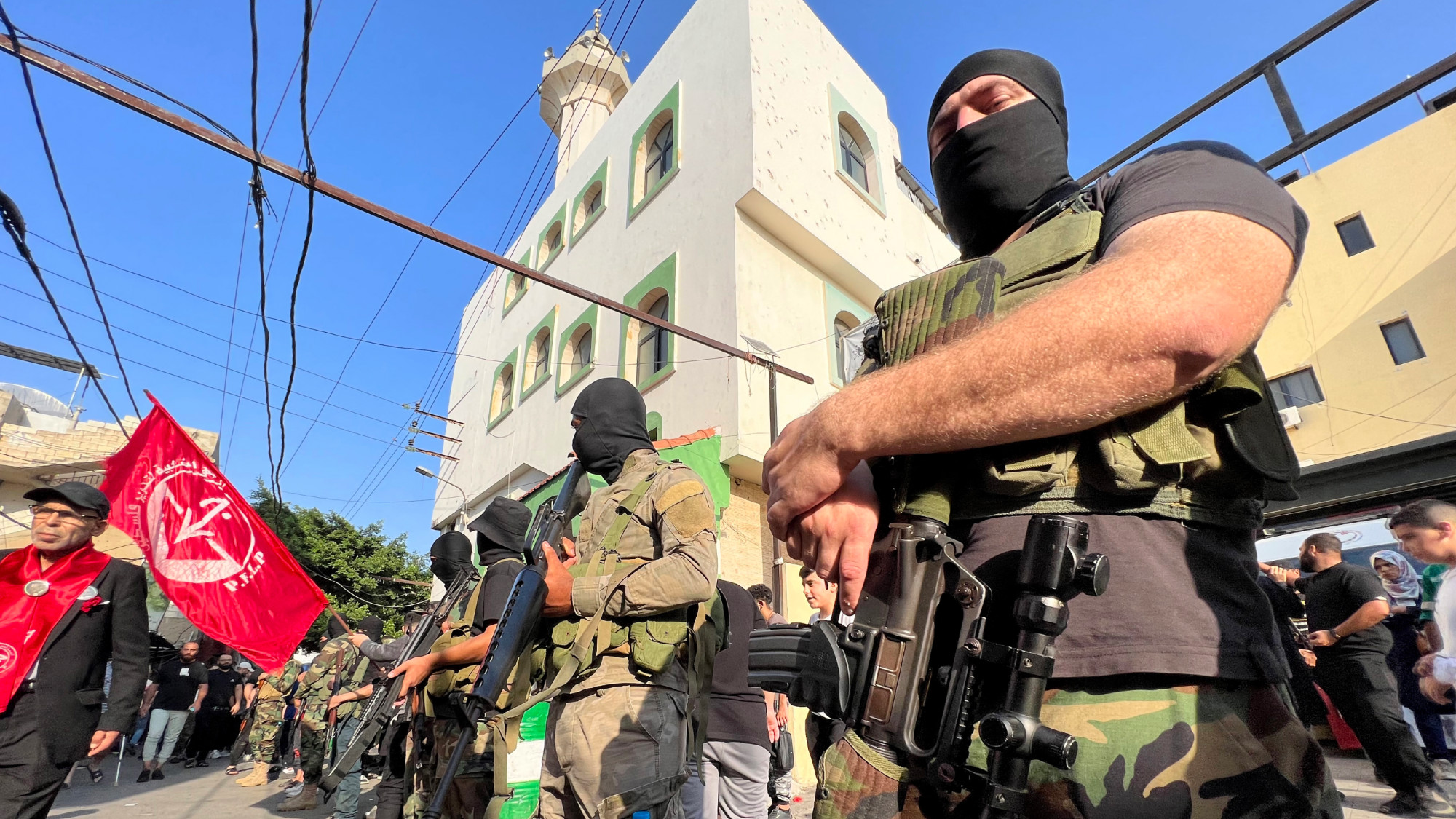Lebanon: Palestinian factions wary of Abbas disarmament plan

Palestinian factions in Lebanon's refugee camps are uncertain about reported plans by Mahmoud Abbas to push for their disarmament during his upcoming visit to Beirut.
With no official communication confirming such intentions in a region marked by escalating tensions, some factions remain unmoved by what they describe as media speculation rather than a concrete policy initiative.
Last week, Middle East Eye revealed that Abbas is set to visit Lebanon on 19 May and call on all Palestinian factions to disarm, including his own Palestinian National Liberation Movement, more commonly known as Fatah.
Sources said he has also agreed to back a military operation against those who refuse.
A security committee will oversee the process, which follows a Saudi request. Non-compliant groups risk losing political backing and facing force.
New MEE newsletter: Jerusalem Dispatch
Sign up to get the latest insights and analysis on Israel-Palestine, alongside Turkey Unpacked and other MEE newsletters
For the Popular Front for the Liberation of Palestine (PFLP), the question of arms cannot be separated from the legacy of collective trauma and the politics of self-defence.
"The issue of arms in the camps has not been formally placed on the agenda of the president’s visit, nor has it been raised through official channels," said Abdullah Dandan, the PFLP’s political relations officer in Lebanon.
He stressed that the factions have no desire to disrupt Lebanon’s internal stability.
"We are guests here," he told MEE.
Yet, Dandan also warned against repeating the past.
“In the 1980s, Palestinians handed over their weapons under American guarantees. Then came the Sabra and Shatila massacre, and no one protected us. What guarantees exist today if we disarm?”
In contrast, Fatah’s leadership in Lebanon struck a more diplomatic tone, welcoming dialogue and calling for better arms regulation - without explicitly endorsing disarmament.
“The president’s visit is not solely about weapons. It is a statesman’s visit of support and goodwill for the new Lebanese presidency,” said Sarhan Sarhan, Fatah's deputy secretary in Lebanon.
While affirming that Fatah’s arms are “disciplined, individually held, and securely stored”, Sarhan noted the group's openness to discussion and reiterated support for Lebanon’s sovereignty.
“We are entering a new phase after the war on Gaza and Lebanon. There are more urgent matters for the president to address, such as terrorism in the camps and Unrwa funding,” he told MEE.
“We have achieved much through diplomacy. Twenty-two percent of Palestinian land has been liberated, and nearly a million Palestinians have returned. Gaza reminds us all that armed confrontation comes at a great cost.”
Hamas and Palestinian Islamic Jihad - both key players in Lebanon’s refugee camps and political rivals of Abbas - have largely remained silent on the planned disarmament announcement, with members of both groups declining to comment to MEE.
Law and order
On the ground, however, the debate about disarmament is interpreted in more complex and often contradictory ways.
Palestinian refugees are not always clear which weapons are being targeted, whether those held by organised factions or by criminals who have taken root in some of the camps.
While Palestinian factions control a range of light to medium weapons, they are not the only armed actors in the camps.
In the absence of a central authority, some camps have become havens for fugitives and drug traffickers, elements widely rejected by the community.
Residents frequently express frustration over this deterioration of internal order. For many, the problem is not the presence of arms, but the lack of control over their use.
'In this unstable environment, who is going to protect us?'
- Abu Omar, refugee camp popular committee member
“Weapons should not be in just anyone’s hands, especially when those people aren’t the best people,” said Amal Abou Ramadan from Burj el-Barajneh, a refugee camp in southern Beirut that has witnessed repeated shootings.
“When these bad people hold arms, it becomes a source of danger to us. Someone should regulate.”
Yet, for others, the question of internal control cannot be separated from external threats. In a country where weapons are widespread and state protection uneven, the idea of disarmament evokes fears of vulnerability.
Abu Omar, a member of the popular committee in Burj al-Barajneh, recalled a recent incident.
“During Ramadan, a truck carrying aid to Nahr al-Bared, where the camp is fully disarmed, was attacked by Lebanese men who seized the supplies. There was no one to defend the truck. In this unstable environment, who is going to protect us?”
This tension lies at the heart of the disarmament debate. While the community seeks order and safety within the camps, it remains wary of exposure in a broader security landscape where the state does not fully control the monopoly on violence.
The push to disarm Palestinian factions is viewed as part of a broader effort to reshape Lebanon’s political landscape, following a major setback for Hezbollah after Israeli strikes last year eliminated much of its leadership.
middleeasteye.net